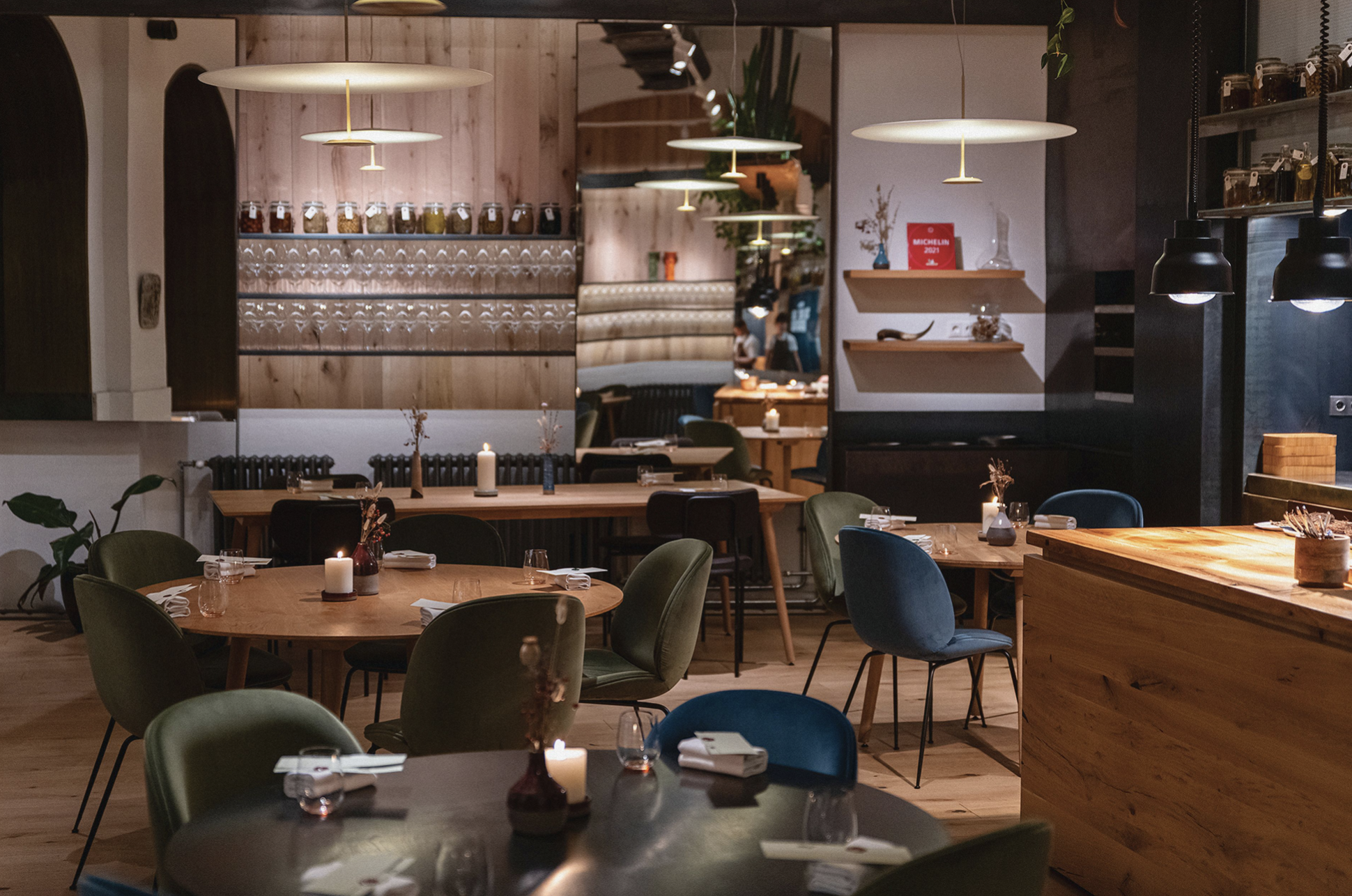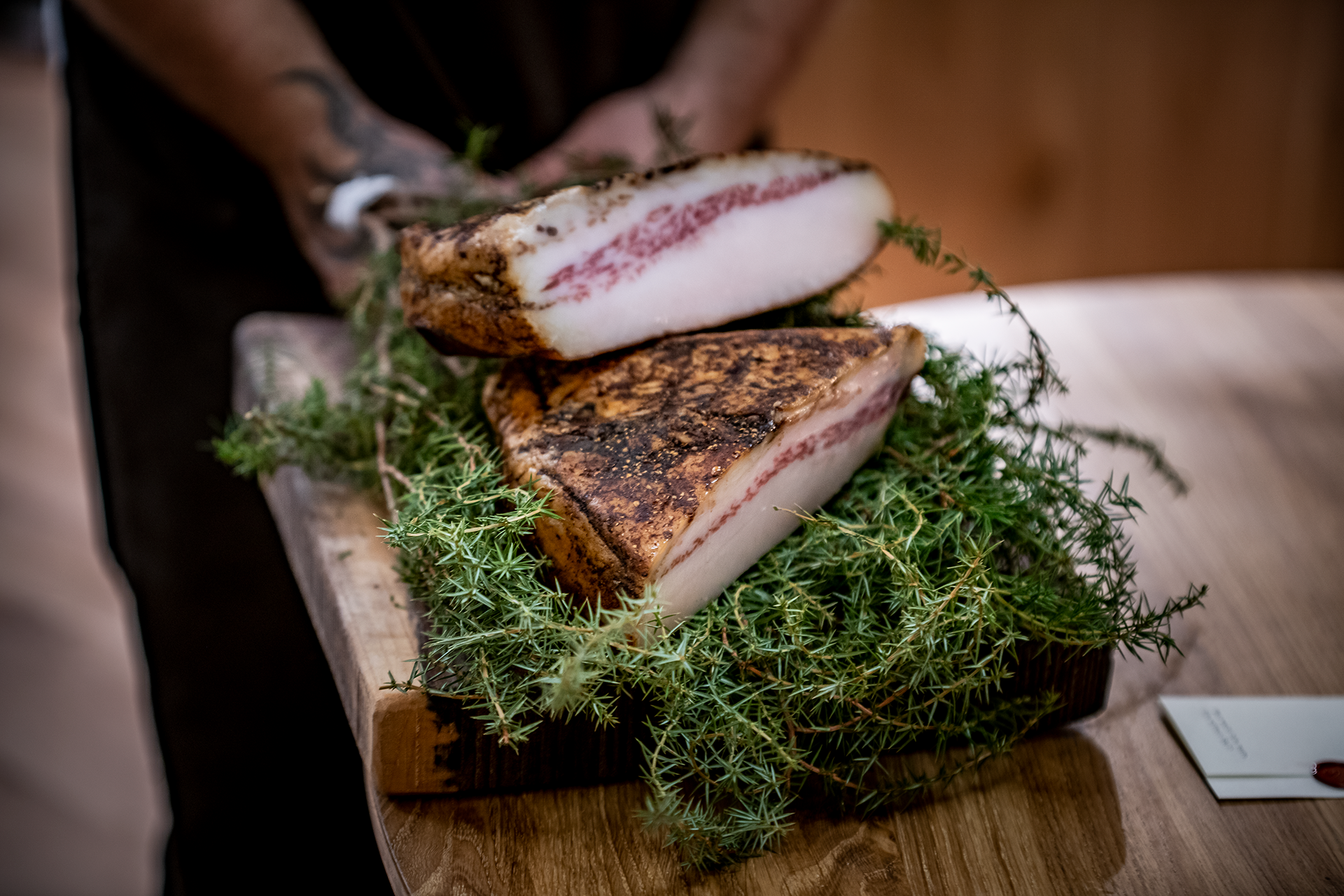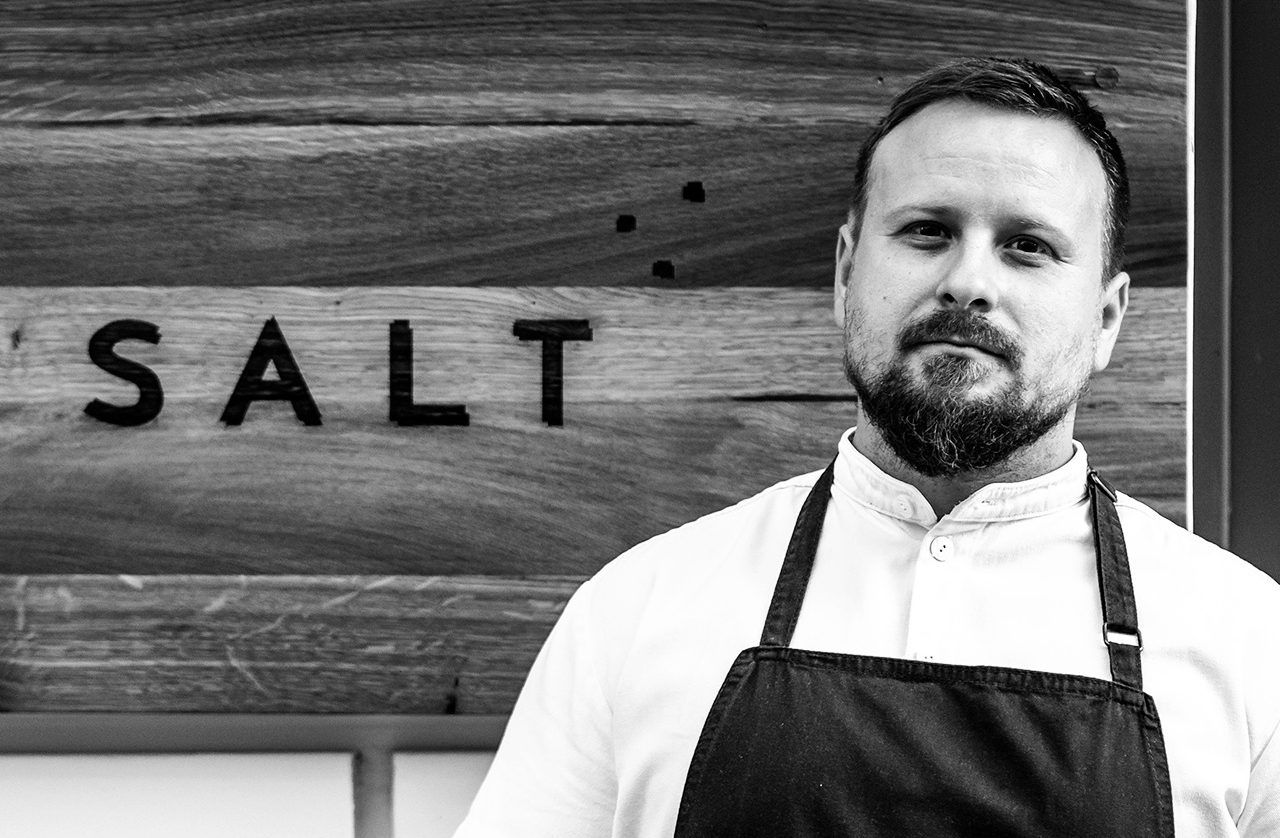Szilárd Tóth, chef and co-owner of SALT restaurant, believes that two things are eternal: nature and tradition. His unique interpretation of gastronomy has won him a Michelin star, but the cosy ambience of his restaurant cannot be measured in mere stars.
Interview.

What inspired you to take up gastronomy?
I was a little boy when cooking programmes first started to air on Hungarian TV. When I was around 12 and my parents were working late, I would watch these programmes and try making the dishes myself, then I would take the food over to our neighbours. I always got positive feedback. I’m not sure if it was because I was just a kid, or if I really did a great job, but it gave me motivation. When it was time to pick a career, I had zero doubts.
What is your favourite moment in your profession?
Honestly, I tried to be varied in my preferences, and as luck would have it, that is pretty much how it worked out. There isn’t anything specific I love, it’s all great. Experimenting, roaming the forest, providing the actual service – it’s all wonderful in its own way.

You mentioned roaming in the forest, and it is well known that you are a great lover of herbs and wild flowers. Where did that come from?
My love of nature comes from my childhood. It was only much later that I realised I wanted to integrate that into the style I represent. As a kid, we spent most of our time in the forest: I learned to swim in natural rivers, and we would pick wild mulberries and sloes as a snack while fishing. I remember seeing a David Attenborough film once, where they ate honeypot ant eggs, and I went right out to find an anthill. Of course, I didn’t realise that those are different kinds of ants. Since then, of course, I’ve learned that there are a few Hungarian species with gastronomical value as well.
How can traditional Hungarian cuisine hold its own in the world of fine dining?
In my opinion, Hungarian fine dining could not exist without Hungarian traditions. There is no need to reimagine anything, it is enough to walk the existing paths. The point is to keep working with those same traditions, flavour pairings or grandmother’s recipes typical of certain regions, and thus create new dishes to move Hungarian gastronomy forward.
What do you most enjoy cooking for your family at home?
I know it doesn’t sound complicated, but making a good broth soup takes a lot of care and attention. I like it a lot, and I like that the whole family is together at these times – there’s an emotional charge there, and I think maybe you can feel it in the restaurant as well.

Jeff Koons used a BMW as his canvas this time

Handwritten jottings or digital notes in the cloud? No need to choose!










